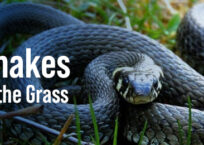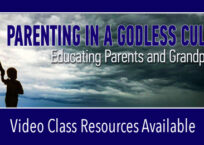
The Daily Herald is featuring articles highlighting the annual Banned Book Week across America – Sept. 25 thru October 2 – and how our local libraries have special events to celebrate their “Freedom to Read” policies. Click HERE for The Daily Herald article.
Banned Book Week is a farce and an insult to the intelligence and goodwill of the taxpayers who pay for local public libraries and staff salaries. Neither the American Library Association [ALA] nor the local community library is a “governmental” agency. It is the taxpayers who own their community library and should have the freedom to determine the policies that regulate this community service institution. The ALA, a private, non-governmental group of associated librarians, has incrementally usurped the freedoms of clients – especially parents – to determine which books should be selected for their library shelves.
If anyone bans books, it is the radical American Library Association, which has run rough shod over our libraries for too many years and now solely determines which books are or are NOT ordered for display.
It has been proven that books that have been banned from library shelves are those that the ALA “selection process” does not allow. Example: Go to your local library and see how many books available are pro-homosexual propaganda and how many express a Christian or opposing point of view. Check out the religious books section. Do you see more books on cults, New Age, and non-Christian religions? So who’s censoring what and why?
Following is Mitchell Muncy’s article appearing in the Wall Street Journal in September, 2009, which in my opinion points a finger at who are the real “zealots, bigots and false patriots.”
Arlene Sawicki
Finding Censorship Where There Is None
By MITCHELL MUNCY
‘To you zealots and bigots and false patriots who live in fear of discourse. You screamers and banners and burners. . . .” These are the opening lines of the official Manifesto of Banned Books Week, which starts tomorrow. This annual “national celebration of the freedom to read” is led by the American Library Association (ALA) and co-sponsored by a number of professional associations and advocacy groups. Events and displays at “hundreds” of libraries and bookstores will “draw attention to the problem of censorship” in the U.S.
As the tone of the Manifesto suggests, the sponsors are more interested in confrontation than celebration. The Banned Books Week Readout in Chicago will feature “wildly successful” and “incredibly popular” authors who will “share their experiences as targets of censors.” The American Booksellers Foundation for Free Expression has produced posters, based on a graphic-novel adaptation of “Fahrenheit 451,” to help “publicize the hundreds of attacks on books that occur every year in the United States.” The ALA has launched an online U.S. “censorship map” to show how pervasive the threat is.
In the common-law tradition, censorship refers specifically to the government’s prior restraint on publication. None of the sponsors claim this has happened; the acts they have in mind are perpetrated by private citizens. Yet the cases on the map almost all involve ordinary people lodging complaints with school and library authorities. Before Banned Books Week began in 1982, such behavior was known as petitioning the government for a redress of grievances.
The problem of loose language aside, we can still ask whether books are banned in this country. The obvious answer is no, if banned means something like “made dangerous or difficult for the average person to obtain.” Many books that have drawn critics’ attention have been best sellers (the Harry Potter books and Philip Pullman’s “His Dark Materials” trilogy), classics (“The Adventures of Huckleberry Finn” and “To Kill a Mockingbird”), or the work of acclaimed authors (Toni Morrison and Margaret Atwood). If a book isn’t available at one library or bookstore, it’s certainly available at another. Not even the most committed civil libertarian demands that every book be immediately available everywhere on request-though in the age of Amazon that’s nearly the case.
The ALA would surely consider these objections irrelevant. Yet its case isn’t very compelling even on its own terms. One doubtful sign is the censorship map’s title, “Book Bans and Challenges, 2007-2009” (my emphasis). By this definition, censorship includes not only the actual removal of books, but complaints about books as well.
And it’s clear why complaints must be counted. In only 10% of the 186 cases on the map was a book permanently removed from a library. (If we add books removed from individual classrooms, we reach 16%.) If the criterion of book banning is that a book be banned-anywhere-the incidence of censorship drops about 90%. The ALA grants on its Web site that “most of the books featured during [Banned Books Week] were not banned.”
Moreover, to read the ALA’s own accounts, the petitioners, losing nearly six times out of seven, accepted the adverse judgments peaceably. Those “who live in fear of discourse,” as the Manifesto has it, were evidently satisfied with the opportunity to make their case. For the ALA, what makes them censors is that they spoke up at all: “True” patriots, presumably, would have kept quiet. Who, then, is afraid of discourse?
More telling is that 80% of challenges-and all but one removal-took place at schools. The remaining 20% of challenges, brought at public libraries, all concerned the exposure of children to possibly inappropriate material. The Manifesto indirectly acknowledges this: “You say you’re afraid for children . . . [but] ignorance is no armor.” (Could we agree to censor stale imagery?)
What inflames the ALA, in other words, are attempts by parents to guide their children’s education. One of the “frequently asked questions” on the ALA’s Web site is: “Can’t parents tell the librarian what material they don’t think children should have?” The Manifesto’s answer is clearly “no.”
There’s something odd about a national organization with a $54 million budget and 67,000 members reacting so zealously against a few unorganized, law-abiding parents whose efforts, by any sensible standard, are hopelessly ineffective. The ALA’s members have immeasurably more power than the “censors” they denounce to decide what books are available in our communities, but this power is so familiar it’s invisible. Why do parents’ public petitions constitute censorship, while librarians’ hidden verdicts do not? A spokesman for the ALA once tackled this question in the Boston Globe: “The selection criteria that librarians use may not always be what everybody wants. I don’t see that it’s a real problem.” Move along, folks, nothing to see here.
The ALA repeatedly emphasizes that public and school libraries are “government bodies.” Is Banned Books Week a celebration of free speech, or is it a way for government employees to bully ordinary citizens by stigmatizing those who complain (“bigots,” “false patriots,” “screamers,” “burners”)? They clearly hope future challenges simply won’t be brought. Does that make Banned Books Week an attempt at prior restraint on speech by the government-an act of censorship?
Early in 1774, Benjamin Franklin reported the British government’s harsh reaction to a petition he had presented on behalf of the Massachusetts Assembly: “Grievances cannot be redressed unless they are known; and they cannot be known but through complaints and petitions: If these are deemed as affronts, and the messengers punished as offenders, who will henceforth send petitions?” Franklin, the founder of American libraries, understood that threats to freedom are much more likely to come from those in power who won’t hear criticism than from private citizens who want a hearing.
Mr. Muncy is chief operating officer of the Institute for American Values. From 1996 to 2008, he was editor in chief of Spence Publishing.
Arlene Sawicki is a co-founder of VoteLifeAmerica.com. Arlene Sawicki is a long-time pro-life and pro-family advocate, defending and promoting traditional values. She served on the Board of Directors of the Chicago Archdiocesan Council of Catholic Women as Chairperson for Family Concerns, Morality in Media and Legislation.































